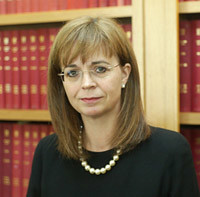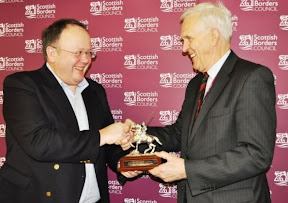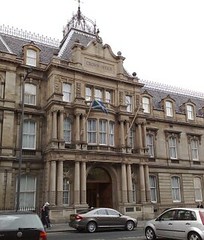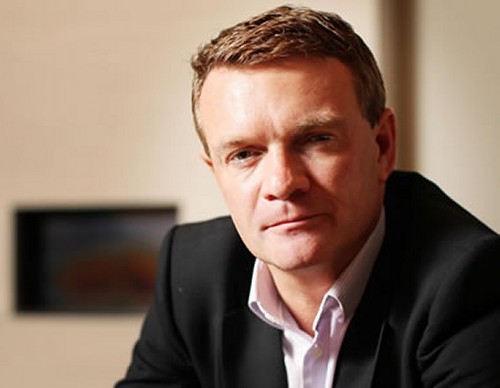AS SENIOR FIGURES in Scotland’s legal establishment quake at the thought of new revelations of a continuing Magic Circle of gay Scottish judges who have perverted the course of justice in Scotland’s courts for sexual favours involving young males, both in Scotland & abroad in Thailand, the spotlight has shifted to the current prominent positions, some very close even to the First Minister Alex Salmond himself and other sideline business ventures of political allies (funded by taxpayers money) of many of those involved in the original Magic Circle gay judges sex scandal affair of the early 1990’s which saw the downfall of several senior Scottish legal figures & judges.
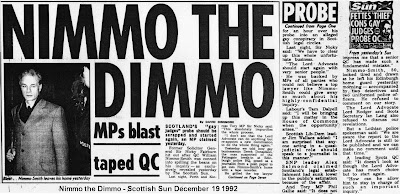 Scottish Sun branded Nimmo Smith “Nimmo the Dimmo” over Magic Circle gay sex for justice investigation.The Magic Circle scandal saw allegations Scots judges were alleged to have used gay sex favours to pervert the course of justice lasted through the late 1980’s well into the 1990’s during which at least one High Court judge resigned his position under a cloud of suspicion, retirements of other legal figures who were quietly put out to grass, and ultimately, Lord Nimmo Smith’s report on the Magic Circle affair, branded a whitewash of a very serious gay sex for justice scandal which appears to have continued to this day. The report by Lord Nimmo Smith is here : REPORT ON MAGIC CIRCLE GAY JUSTICE SCANDAL (pdf) In spite of the cover up, which led to lurid headlines yet no prosecutions, the very same Lord Nimmo Smith, who was branded “Nimmo the Dimmo” by the Sun newspaper, & sought psychiatric treatment after his exposure in the media over the Magic Circle events, has been appointed by the Scottish Football Association to investigate the problems at Rangers FC, as reported earlier HERE
Scottish Sun branded Nimmo Smith “Nimmo the Dimmo” over Magic Circle gay sex for justice investigation.The Magic Circle scandal saw allegations Scots judges were alleged to have used gay sex favours to pervert the course of justice lasted through the late 1980’s well into the 1990’s during which at least one High Court judge resigned his position under a cloud of suspicion, retirements of other legal figures who were quietly put out to grass, and ultimately, Lord Nimmo Smith’s report on the Magic Circle affair, branded a whitewash of a very serious gay sex for justice scandal which appears to have continued to this day. The report by Lord Nimmo Smith is here : REPORT ON MAGIC CIRCLE GAY JUSTICE SCANDAL (pdf) In spite of the cover up, which led to lurid headlines yet no prosecutions, the very same Lord Nimmo Smith, who was branded “Nimmo the Dimmo” by the Sun newspaper, & sought psychiatric treatment after his exposure in the media over the Magic Circle events, has been appointed by the Scottish Football Association to investigate the problems at Rangers FC, as reported earlier HERE
One of the figures interviewed during the Magic Circle scandal, was Lord Fraser of Carmyllie who was Solicitor General for Scotland from 1982-1989 and went onto be Lord Advocate from 1989-1992, the period of time covering most of the major events & allegations surrounding the Magic Circle affair, taking in everything from break ins at Lothian & Borders Police HQ at Fettes (dubbed Fettesgate) and also a somewhat forgotten trial of two individuals accused of fraud, Gordon Michael May (who went on to be involved in the Thai Gay sex industry) & Arthur Colin Tucker, where Lord Fraser after consultation with the Advocate Depute in charge of the trial, agreed to drop proceedings in a case which was reported in Lord Nimmo Smith’s Magic Circle report.
In the case of HMA v GORDON MICHAEL MAY AND ARTHUR COLIN TUCKER :
On 8 May 1991 the trial of May and Tucker began at the High Court in Dunfermline on an indictment containing two charges. The first charge libelled that between 1 January and 31 December 1987 May, while employed as a director of a company known as Teague Homes (Scotland) Limited and Tucker, while employed as a partner in the firm of Burnett Walker, WS, and while acting as solicitor for that Company, having formed a criminal purpose to obtain money due to the Company in respect of the sale of properties in a building development by the Company, in pursuance of said criminal purpose did certain acts and did thus embezzle £213,679. The second charge libelled that between 1 June and 31 July 1987 May, while employed as a director of the company, did certain acts and thus obtained £6,753.38 by fraud. On 15 May 1991 the trial came to an end when the Crown withdrew the libel against both accused, thus dropping the charges against them, and the jury, on the direction of the Judge, returned unanimous verdicts of not guilty.
As the case against May & Tucker buckled, the advocate depute contacted the then Lord Advocate, Lord Peter Fraser, now Ministerial Complaints adviser to Alex Salmond, who concurred the case should be dropped, even though it was by then clear to many onlookers, there was a gay Scottish judges connection with Thailand’s gay boy industry.
Buried on Page 85 of Lord Nimmo Smith’s report, it states : “The Advocate Depute telephoned the Lord Advocate, Lord Fraser, who was in London. Although it would have been open to him to withdraw the libel without reference to the Lord Advocate he was aware of the rumours which had followed Tucker's previous acquittal and he was concerned about the risk that a decision not to proceed further against May and Tucker might be misinterpreted.”
“He explained to the Lord Advocate his view of the evidence and referred also to what he had heard from the Judge's clerk. He and the Lord Advocate agreed that the only reason for continuing with the trial would have been to avoid possible criticism and that was nota proper reason.The Lord Advocate accordingly agreed with the Advocate Depute's decision on the basis of the evidence that it would not be in the public interest to continue with the prosecution. When counsel returned to court for the resumption of the trial after lunch that day the Advocate Depute told defence Counsel of his decision. They had no prior knowledge of it and were accordingly somewhat surprised. When the court sat the Advocate Depute withdrew the libel and Lord Milligan instructed the jury to return a formal verdict of not guilty.”
Clearly, in the light of more recent investigations by the Scottish media, reprinted below, the decision to withdraw the prosecution’s case as it hung in court, may have been premature… and, what was not generally known at the time was that several Scottish judges had chosen to invest some of their accumulated wealth in gay clubs in Thailand, where they frequently flew out to visit, seeking sexual relations with the youngest of males.
In one account made to an enquiring journalist, “On one not so fine sunny day, a commercial flight en route to Thailand which, among the passengers was carrying several of Scotland’s first division judges was forced to divert to a Military airbase in Thailand due to the aircraft suffering an lightning strike during a storm. Sitting in the seats were several sweaty Scottish judges worried the incident would become a photo opportunity for journalists who might have rumbled their little boy hunt.”
Its easy to remember why these judges were on their way to Thailand, via a detailed investigation from the Sunday Herald newspaper, reprinted below. However, its not so easy to come to the same conclusions as Lord Nimmo Smith, that nothing untoward happened in the Scottish justice system and there was no grounds to the Magic Circle affair whatsoever, leaving those who are looking for answers over the Rangers FC affair, a little worried the answers may not be forthcoming in this 'independent inquiry' kicked off by the SFA...
The Sunday Herald reports :
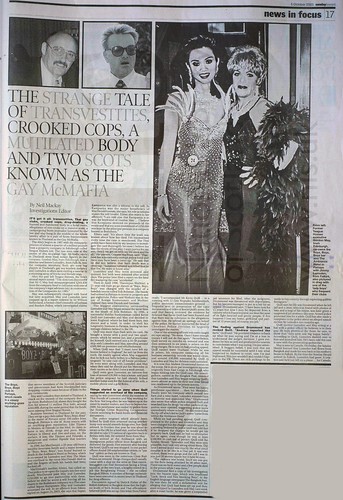 THE STRANGE TALE OF TRANSVESTITES, CROOKED COPS, A MUTILATED BODY AND TWO SCOTS KNOWN AS THE GAY McMAFIA
THE STRANGE TALE OF TRANSVESTITES, CROOKED COPS, A MUTILATED BODY AND TWO SCOTS KNOWN AS THE GAY McMAFIA
By Neil Mackay
Investigations Editor Sunday Herald 5 October 2003
IT'S got it all: transvestites, Thai gay clubs, crooked cops, drug-dealing, a burned and butchered body in a hotel room, allegations of con-tricks on a massive scale, a campaigning Scots journalist hounded by the law and slap bang in the middle of the whole tawdry affair is a pair of Scots businessmen known in Thailand as the Gay McMafia.
The story begins in 1987 with the misappropriation of almost a quarter of a million pounds from a property company in Edinburgh called Teague Homes Ltd. The two men now at the centre of the so-called Gay McMafia story in Thailand were then senior figures in the company. Gordon May, from Edinburgh, was a director and James Lumsden, from Falkirk, was the company secretary. Both are now big players in Thailand's gay sex tourism industry and Lumsden is often seen cutting a swathe in a stunning array of frocks and blonde wigs.
After the pair left Teague Homes, the firm's annual report noted: "The directors discovered that Mr G May had misappropriated £243,438 from the company fund in collusion with one of the company's legal advisors [sic] in contravention of the Companies Act 1985."
May was subsequently charged with fraud but later acquitted. May and Lumsden later cropped up in a report ordered by Sir William Sutherland, a former chief constable of Lothian and Borders Police, which investigated claims that senior members of the Scottish judiciary and prosecutors had been blackmailed into dropping criminal cases because of links to the gay community.
May and Lumsden then moved to Thailand. A check on the records of the company they set up there, Bodishorn Ltd, shows they bought the firm for around 11 million Thai baht, around £240,000, during the same period that the funds went missing from Teague Homes.
Business boomed in Thailand for the pair. They set up a gay club called "Boyz, Boyz, Boyz" in the resort of Pattaya some 100 miles from Bangkok. Pattaya is one of those resorts with an anything-goes reputation. Like Tijuana in Mexico, or Falaraki in the Med, its claim to fame is sex, drink, drugs and porn. While Pattaya is liberal and free-and-easy on the surface, it has, like Tijuana and Falaraki, a dangerous and violent flipside that tourists seldom see.
In 1990, Ian MacDonald, a 28-year-old from a wealthy Inverness family and a major investor in "Boyz, Boyz, Boyz", was found burned to death in the Ambiance Hotel in Pattaya, which is co-owned by Lumsden and May. The blaze was confined to the room MacDonald died in and the fingers of both his hands had been hacked off.
MacDonald's mother, Eileen has called on Thai police to re-open the inquiry into her son’s death. MacDonald paid May and Lumsden £250,000 to go into partnership with them. Before he died he wrote a will leaving all his shares to the Bodishorn company to a Thai man called Supan Kampanya. May and Lumsden witnessed the will. In an afadavit from Eileen signed on August 24, 2003 she says that Supan Kampanya was also a witness to the will. As Kampanya was the major beneficiary of MacDonald's estate, she says, his role as witness makes the will invalid. Eileen also states in her affidavit: "I am told also that Kampanya is or was the boyfriend of Gordon May ... I believe that Kampanya received no proceeds of the estate and that my son's investment of £250,000 was kept by the principal persons in a company known as Bodishorn."
Eileen said: "It's about time the truth was known about how Ian died. I'm traumatised every time the case is mentioned. The Thai police have been told by my lawyers to investigate the case thoroughly because I believe Ian was the victim of foul play. I want justice for my son, then I can get on with my life once and for all." Her partner, Graeme MacBean, said: "Thailand has a notoriously corrupt police force and there may have been a cover-up." He said that he did not believe that Ian's death was a cover-up: "Someone tortured and killed him in that fire. We want to know who."
Lumsden and May were arrested and quizzed, but both were released after several days. The police later filed a report on the fatal fire stamping the case "accidental".
Then in April 1996, Thaveepan Wuthisri, a 21-year-old male go-go dancer at "Boyz, Boyz, Boyz" was charged with the murder of a Swedish tourist called Erik Bohman. The Swede had arrived in Pattaya to invest in property and gay nightclubs. Police said Wuthisri was in the pay of foreign businessmen and Wuthisri claimed they were Danish and German.
The biggest controversy surrounding Lumsden and May began around the same time as the death of Erik Bohman. In 1996, a successful Halifax businessman called Kevin Quill met Lumsden and May and decided to leave England, where he had three bars, two discos and a hotel, in order to shift his hospitality business to Pattaya, leaving his two teenage children behind in the UK.
Quill was more than flash with his cash. He bought a house with a pool and two apartments, which he rented out, and a penthouse for himself. Quill entered into a 50-50 partnership with Lumsden and May, spending around £500,000 on premises and refurbishment.
When Quill says that "I must have left my brains behind in England", he isn't far from the truth. He readily agreed when May suggested that he fork out hefty bribes to a Pattaya police sergeant "to take care of all future problems". He even went along with Lumsden and May when they said he should put his Mercedes in their names as he didn't have a work permit.
Quill even gave Lumsden an interest-free loan of around £20,000 to buy a house, arid paid the police sergeant he had already bribed another lump sum for the funeral of his wife, a mobile phone and a gold Rolex.
Things started to go awry when Quill suggested an overhaul of the company, saying he was concerned about the number of Thai friends of Lumsden and May working for the firm. Not long after, he was beaten up in the street by market traders, and then in September 2000, his penthouse was raided by police from the Foreign Crime Reporting Co-operation Centre searching for bank books and financial documents.
The police sergeant who'd already been bribed by Quill then returned saying another lump sum would smooth things over, but Quill refused. In October that year he was about to return to the UK for a brief visit, and he foolishly decided to take 170 cartons of cigarettes back to Britain with him. He ordered them from May.
May arrived at the Ambiance with an immigration police officer from Bangkok and delivered the goods. Five minutes after leaving the hotel, Quill's car was stopped. In one packet officers found 100 amphetamine tablets, or "yaa baa" tablets as they are known in Thai.
Quill was soon in the notorious Chon Buri Prison on remand. Drugs charges don't usually come with a slap on the wrist in Thai courts. Smugglers can find themselves facing a firing squad or, at the very least, a lengthy stretch in a jail like Bangkwang Prison - the so-called Bangkok Hilton. A number of foreign nationals have been executed in recent years in Thailand for drug offences.
Documents signed by Deryck Fisher of the British Embassy in Bangkok show that the highest levels of both British and Thai officialdom believed Quill was set up. One letter from Fisher reads: "I accompanied Mr Kevin Quill ... to a meeting with Lt Gen Nopadoi Somboonsub, police assistant commissioner-general ... Nopadoi was in possession of the case documents and video of Kevin Quill's arrest. He said that having reviewed the evidence he believed that Kevin Quill had been framed and that there was no substance to the allegations against him. He offered an apology on behalf of the police, he further instructed the head of Chonburi Police Division to urgently investigate the matter."
One of the arresting officers was even caught on tape saying: "No more. Once I have enough money I will not do this again." Nevertheless, Quill served six months on remand and was then sentenced to six years in prison on the drug charges. He is now on bail pending appeal. Quill cannot leave Thailand. While he was in prison, his computer containing all his business ownership records was wiped clean, and around £50,000 entrusted by Quill to Lumsden and May for defence costs vanished.
It is now that Andrew Drummond comes on the scene. He is an ex-pat investigative reporter originally from East Craigs in Edinburgh who began looking into the Quill case. His investigations, carried in the Bangkok Post, revealed that Lumsden and May began stripping Quill's assets almost as soon as their one-time friend was swallowed up in the prison system.
As Drummond wrote: "First went his luxury penthouse apartment ... then his Mercedes. Finally went his company which owned two bars and a mini-hotel. Lumsden removed him as director and appointed May." Drummond also wrote that when police stopped Quill and searched him for drugs "no other packets of cigarettes were opened, suggesting police knew immediately where to look". He discovered that the tip-off which led to Quill's arrest "came from within the Ambiance Hotel".
While on bail pending appeal, Quill complained to the police and Lumsden and May were charged but the charges were dropped. At a meeting brokered by police Quill was told that if he dropped the charges he would get his property back. Quill said he had no alternative but to agree, even though he was at least £100,000 in cash out of pocket. Quill told the Sunday Herald: "Lumsden and May were very plausible, but I was very wrong about them. The time I served in jail was exactly like what you'd imagine it to be like in a Thai jail. It was very violent, there were gangs and the cell I was in was just 10 metres square but it held 94 men.
"The violence was brutal. You'd see one guy on the floor being attacked by 30 other men. There was no fresh water and a few people died in the prison while I was there."
Drummond filed a copy of his investigation into the bizarre saga, which was headlined "Lock, Stock and Two Smoking Boyz", to the English language newspaper The Bangkok Post. He was then hit with a defamation writ for alleging that Quill had been set up and then asset stripped by Lumsden and May. Last week after a court battle, he was given a suspended jail sentence for libel. After the judgment, Drummond was threatened with deportation, but his lawyers managed to put in a bid for an appeal. Drummond says: "I have been here for 15 years but now I may be deported from a country which I have enjoyed, not least because of its light-hearted and gentle people. If this happens I lose my home, girlfriend and partner of 15 years and, of course, my job."
The finding against Drummond has rocked Quill. "Andrew reported the facts," Quill said. "He provided evidence to back up what he was saying and I'm at a loss to understand the judge's decision. I gave evidence for him as well and produced documents to corroborate what I was saying. I'm just astonished. It beggars belief. I was sure that my appeal would be successful until I saw what happened to Andrew in court, now I'm just frightened. This just wouldn't and couldn't happen in the UK. There are rich pickings to be made in this country through exploiting gullible foreigners."
Quill says his life was threatened when he left jail and a man, who was found with photos of him and a map of his house, was later given a suspended jail sentence this year. Armed police protected him for a while. Quill has also made a complaint to the police about an alleged assault on him by Lumsden two months ago.
Quill spotted Lumsden and May sitting at a bar with a police officer he believes is in their pay. He took photos of the three, he says, to show that "they were one big happy family". According to Quill, Lumsden dashed over to him and assaulted him. He's been told the case is now with the prosecuting authorities.
May is now in Canada. On Friday, the Sunday Herald learned that Lumsden had flown from Bangkok and made his way back to his mother's house in Falkirk. By the time the Sunday Herald arrived in Falkirk, Lumsden had gone. A relative said he'd just left on a plane ... for Canada.
 NIMMO THE DIMMO
NIMMO THE DIMMO
MPs blast taped QC
By David Dinsmore The Scottish Sun, Saturday 20 December 1992
SCOTLAND'S “Gay Judges” probe should be scrapped and started again, an MP claimed yesterday.
Former Solicitor General Sir Nicky Fairburn hit out after QC William Nimmo-Smith was conned into spilling the beans on his inquiry — as exclusively revealed yesterday by The Scottish Sun.
Last night, Perth and Kinross Tory MP Sir Nicky Fairbairn said: "This absolutely impurifies the whole process. I don't see that the Lord Advocate can do anything but re-appoint a new commission to do the whole thing again."
Yesterday we told how gay businessman Derek Donaldson, the man suspected of the Fettesgate break-in at Edinburgh police HQ, posed as a journalist from a posh paper to get into Nimmo-Smith’s home with a tape recorder.
He grilled the top lawyer for an hour over his probe into an alleged gay conspiracy in Scottish legal circles. Last night. Sir Nicky said: "We have to clear up this whole unfortunate business."The Lord Advocate should start again with very senior people."
He was backed by MPs of all parties who could not believe a top lawyer like Nimmo-Smith could give away so much about his highly-confidential inquiry.
Labour's Tam Dalyell said: "I will be bringing up this matter in the House of Commons when the opportunity arises."
Scottish Lib-Dem leader Jim Wallace added: "I am surprised that anyone acting in a quasi-judicial role should speak to a journalist in this manner.
SNP leader Alex Salmond claimed Scotland's legal establishment had sunk lower in the public's estimation because of the affair.
And Tory MP Phil Gallie said: "It does not impress me that a senior QC has made such a fundamental mistake."
Nimmo-Smith, 50, looked tired and drawn as he left his Edinburgh home guard yesterday morning — accompanied by two detectives and two uniformed police officers. He refused to comment on our story.
The Lord Advocate Lord Rodger and Scots Secretary Ian Lang also refused to discuss our revelations.
But a Lothian police spokesman said: "We are aware the report to the Lord Advocate is still to be published and we can make no comment until that time."
A leading Scots QC said: "It doesn't look as though the Lord Advocate has much choice but to start again. "How can he allow him to stay in charge of such an important inquiry."
 WHO PUSHED WHO ? Council Leader David Parker & Chief Executive David Hume before murky exit. THE controversy surrounding the departure of David Hume from his post as Chief Executive at Scottish Borders Council, reported earlier in the month by Scottish Law Reporter HERE continues unabated, after the member of the public who had been investigating the strange case of Mr Hume’s alleged ‘retirement’, which has now been revealed through the usage of Freedom of Information legislation as an apparently secret voluntary redundancy, has now approached the Local Government Minister for help in uncovering the true nature of Mr Hume’s exit from Scottish Borders Council, along with details of what is reckoned to be a massive financial payoff.
WHO PUSHED WHO ? Council Leader David Parker & Chief Executive David Hume before murky exit. THE controversy surrounding the departure of David Hume from his post as Chief Executive at Scottish Borders Council, reported earlier in the month by Scottish Law Reporter HERE continues unabated, after the member of the public who had been investigating the strange case of Mr Hume’s alleged ‘retirement’, which has now been revealed through the usage of Freedom of Information legislation as an apparently secret voluntary redundancy, has now approached the Local Government Minister for help in uncovering the true nature of Mr Hume’s exit from Scottish Borders Council, along with details of what is reckoned to be a massive financial payoff.
